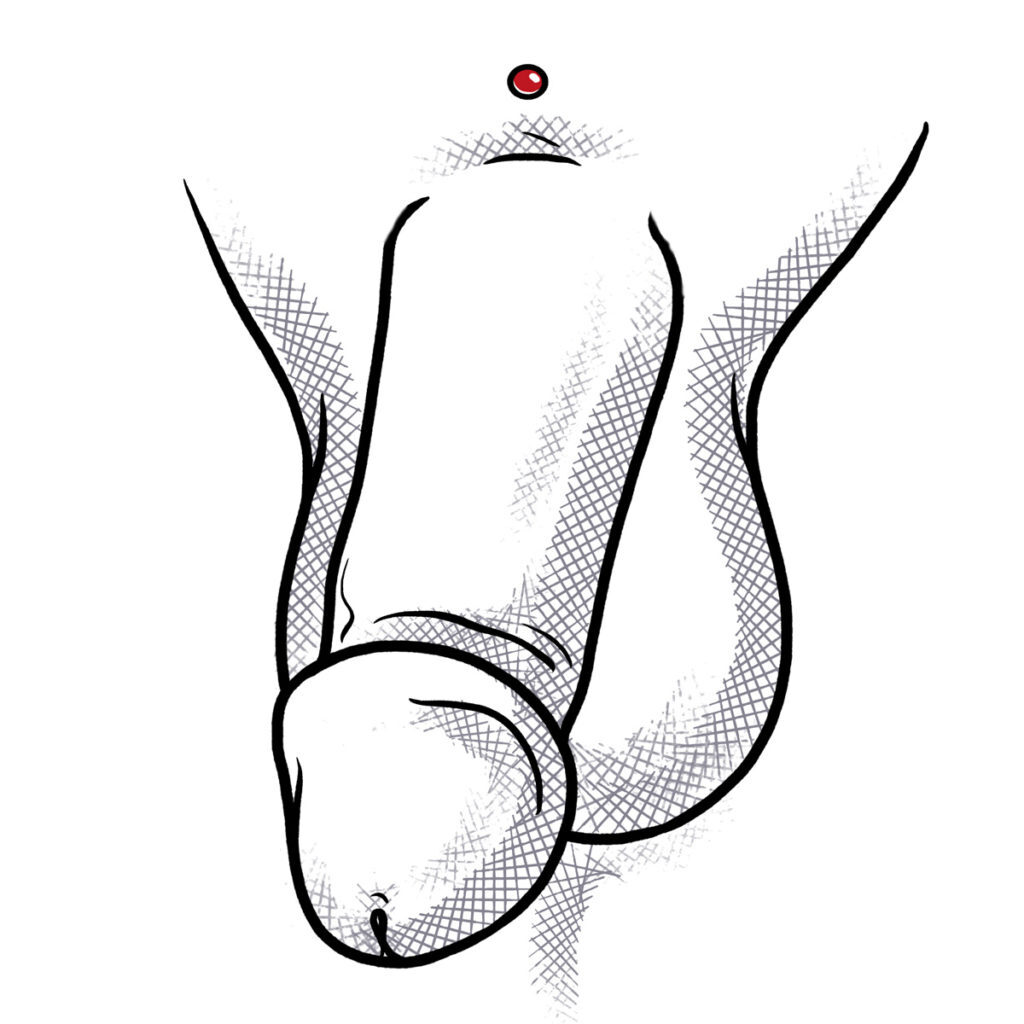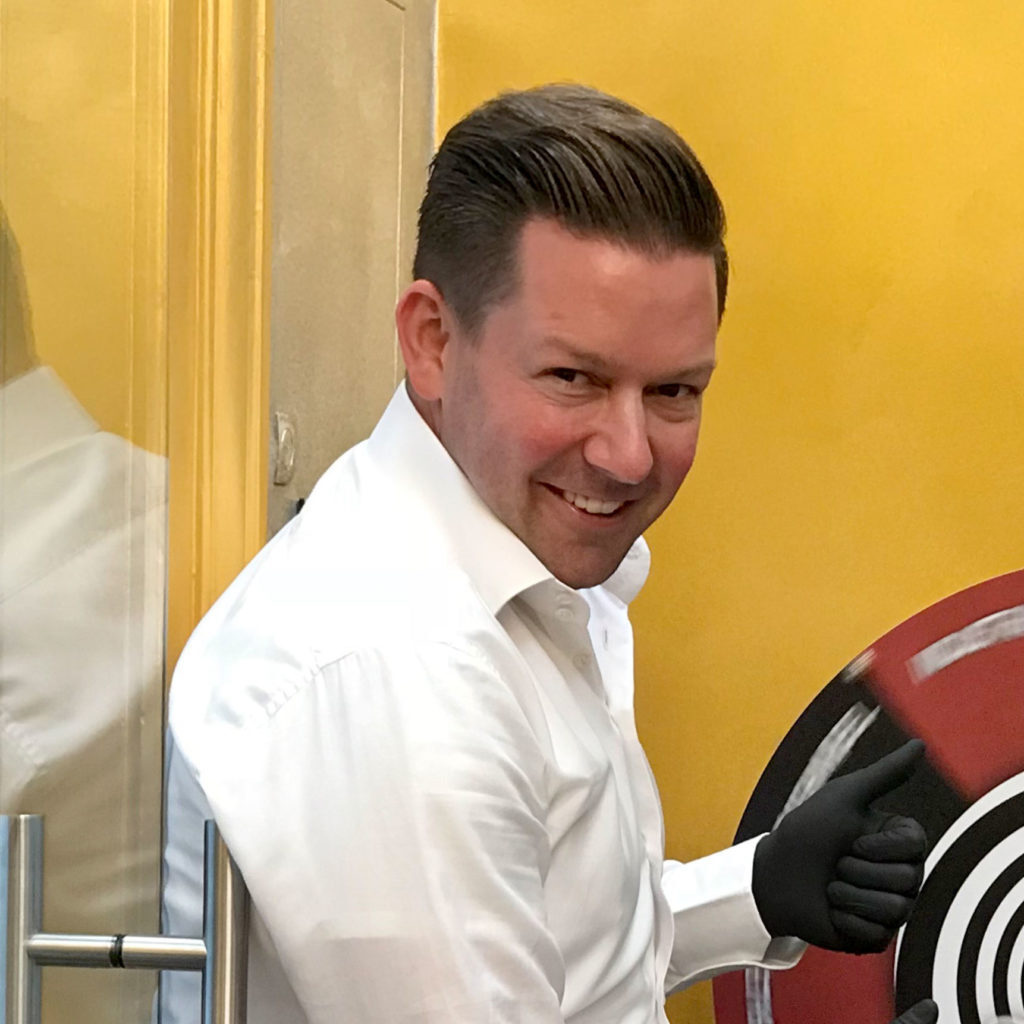Dermal Anchor in the genital area

A dermal anchor can be placed anywhere on the body, and that includes the genital area.
Women can get one ore more implants in the pubic mound, and frequently it is placed above the mound which brings out the microdermal piercing beautifully when the person is standing.
Others opt for microdermals on the outer labia. Men have the option of a dermal anchor in the shaft of the penis or the pubic bone.
Origins:
Dermal anchors are still relatively new. Since their introduction in the middle of 2006, the popularity of microdermals has skyrocketed. Initially, jewelry similar to nose studs were used. A loop under the skin was intended to help it grow in and stay in place. However, experience showed that specially designed implants provided better results.
Currently, there are a number of different implants that we can use, allowing us to place it on almost any part of the body.
Depending on the area of the skin, and the depth of the piercing, we select the most suitable implant. For example, an implant in the pubic bone will differ from one inserted into the shaft of the penis.
Healing and care:
This will depend largely on the spot in which the dermal anchor has been placed.
A dermal anchor can take between 3 and 8 months to heal completely, rarely longer. Like other external piercings, in the first three weeks it should be cleaned with ProntoLind spray twice a day, and then coated with ProntoLind gel.
It is important to wash your hands before touching the pierced area and the jewelry itself.
Disinfectant solutions containing alcohol or chlorine should be avoided.
It is important that when you turn a dermal anchor (for cleaning or coating purposes) you do so in a clockwise direction, because this will ensure that it stays in place.
Note:
The single-point-piercing should be touched as little as possible (wash and disinfect your hands if doing so), and exposed to as little irritation as possible as well. Do not remove or twist the piercing when cleaning, since this can further damage the wound canal. Use ProntoLind-Spray and ProntoLind-Gel twice a day for the first 2-3 weeks, then once a day for another 3 weeks.
Healing Process For All Single-Point-Piercings:
- Depending on the area, the initial healing of a surface piercing can take anywhere between 3 – 12 weeks, and up to 12 months for a complete recovery. A swelling of the lymph nodes in the first few weeks is completely normal.
- At the beginning, make sure you have a professional piercer switch your jewelry to another size of ball, bar, or ring.
- Never tape the piercing wound shut. Also avoid “wound” ointments, alcohol or chlorine-based disinfectants, hydrogen peroxide, and essential oils.
- Saunas, sunbeds, steam baths, and any kind of swimming in pools should be avoided for two weeks. Exposure to sea water is allowed after 7 days.
- Do not color or dye your hair for the first 6 weeks; use caution when combing your hair or visiting the hairdresser/barber.
- It is normal for there to be a wound secretion around the pierced area (initially clear, then yellowish-brown, not to be confused with pus) and for it to become sebaceous. This is part of the healing process, and can be removed with ProntoLind Spray, or when showering.
- A slight reddening and swelling of the skin and light post-treatment bleeding are normal in the first 10 days.
- When engaging in everyday tasks such as dressing, undressing, eating, shaving, applying cream, showering, washing, opening and closing cupboards, be careful that the piercing does not get caught in something and tear.
- Avoid lying down for too long or exerting undue pressure on the pierced area, as this can cause damage.
- If you see the piercing growing in a “crooked” direction, you can lightly twist it in the opposite direction and hold it there a few seconds in order to set it straight again.
Marc
and Piercer
Online reservation for the piercing of your choice
More than 40.000 hiqh-quality piercings and tools.



